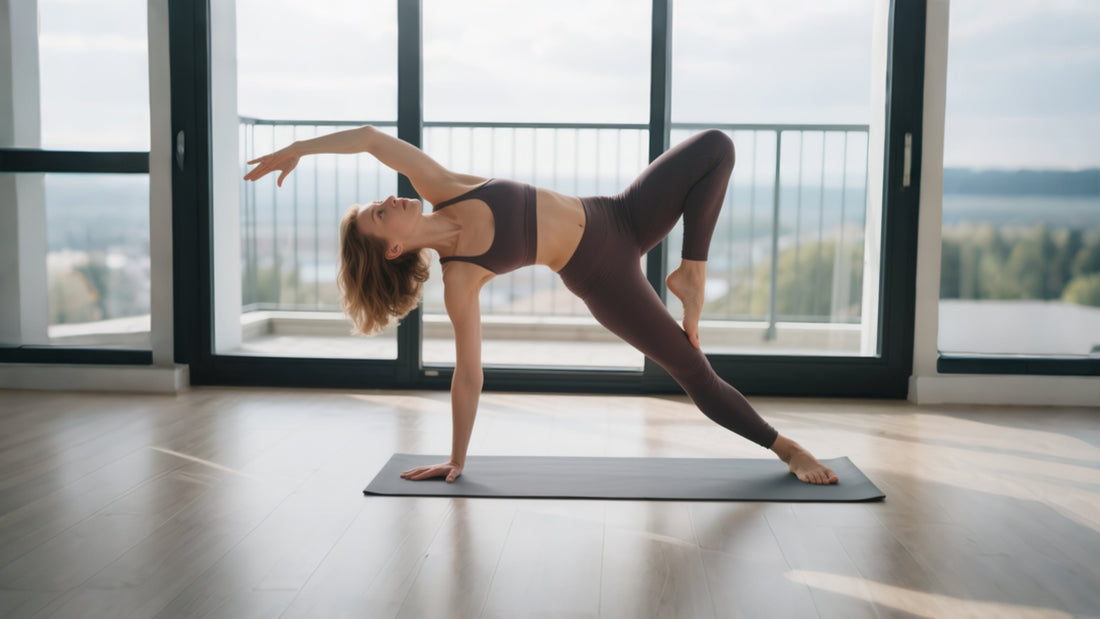
From Flow to Recovery: How Magnesium Supports Your Yoga Journey
Share
You just finished a 90-minute yoga class—your body is loose, your breath steady, and your mind… strangely foggy. Instead of feeling refreshed, you feel drained, your legs are wobbly, and your shoulders feel tighter than ever.
If you've experienced this post-yoga fatigue, you're not alone. While yoga is often viewed as a gentle, restorative practice, it’s actually a complex form of physical and mental work—one that challenges muscles, burns energy, and draws heavily on your body’s internal resources. And one essential mineral might be missing from your recovery routine: magnesium.
This International Yoga Day, let’s look at yoga through a new lens—not just as a flow of movement and breath, but as an activity that demands mindful recovery. Magnesium, nature’s calming mineral, can be your perfect post-yoga partner.
Yoga as exercise:
It’s Gentle, but It’s Not Light
Yoga isn’t just stretching on a mat. Even slow, meditative styles like yin or restorative yoga require you to engage deep stabilizing muscles and maintain intense focus. You sweat, you balance, you breathe with control—and that’s real energy expenditure.
Whether you're holding a Warrior II pose or settling into Savasana, your body is doing more than you think:
- Core engagement activates muscle fibers you don’t normally use.
- Conscious breathing recruits your parasympathetic nervous system.
- Sustained posture demands micro-adjustments that tire muscles.
- Focused awareness can even drain your mental energy.
So if you walk out of the studio feeling physically or emotionally depleted, it might not be from pushing too hard—it might be that you’re not replenishing what you’ve lost.
The Hidden Role of Magnesium in Your Yoga Practice
Magnesium plays a foundational role in energy production, muscle control, and nervous system regulation. It’s involved in over 300 biochemical reactions—many directly connected to how you move, recover, and feel during and after yoga.
1. Muscle Recovery & Relaxation
Magnesium helps release muscle tension by regulating calcium and potassium movement in and out of cells. Without enough of it, post-yoga tightness or even cramps can creep in—even if you stretch carefully.
2. Energy & ATP Support
Ever heard of ATP, the energy molecule? Magnesium is required to stabilize and activate it. If you’re feeling wiped out after a class, magnesium deficiency could be part of the problem.
3. Mood, Calm & Focus
Yoga isn't just a physical experience—it's deeply emotional. Magnesium supports the production of GABA and serotonin, neurotransmitters that help stabilize mood and quiet a racing mind. This is especially helpful if your evening meditation leaves you feeling overstimulated rather than serene.
4. Sleep & Restoration
Many yoga practitioners struggle with post-practice insomnia—your body is tired, but your nervous system is still on high alert. Magnesium helps calm the central nervous system, guiding you into a deeper, more restorative sleep.

Improve your daily yoga with magnesium
You don’t need a major lifestyle overhaul to bring magnesium into your yoga routine. In fact, just a few small adjustments can make a big difference in how you feel—both on and off the mat.
1. Before Class
Taking magnesium supplements before your yoga session can support muscle function, reduce stiffness, and help your body feel more open. This allows you to move more freely, deepen into your stretches, and hold poses with greater ease. If you often feel tight at the beginning of your practice, magnesium might help you warm up faster and flow more comfortably.
2. After Class
Post-yoga is the perfect time to support your body’s recovery. Magnesium plays a key role in muscle repair, helping to reduce soreness and restore electrolyte balance. By replenishing what your body loses through movement and sweat, it promotes faster recovery and helps you feel grounded rather than depleted after a session.
3. Before Bed
If you practice yoga in the evening—especially calming forms like yin or restorative—magnesium supplement can enhance those effects by calming the nervous system and supporting restful sleep. It helps your body fully transition from movement to restoration, reinforcing the mental clarity and emotional balance you cultivate on the mat.
Whether you prefer capsules, gummies, or liquid drops, consistency is key. For optimal absorption and minimal stomach upset, look for gentle forms like magnesium glycinate, magnesium malate, magnesium citrate —especially if you're managing stress, muscle tension, or sleep difficulties.
What to Look for in a Magnesium Supplement
Not all magnesium is created equal. If you're incorporating magnesium into your yoga lifestyle, consider these tips:
- Choose high-absorption forms like magnesium glycinate or magnesium citrate
- Avoid oxide-based formulas unless you need a laxative effect
- Look for products that are free from artificial sweeteners, dyes, or fillers
- If you're plant-based or mindful of additives, seek a clean-label, vegan-friendly formula
Mulittea Magnesium Liquid Drops is designed with these values in mind. We prioritize bioavailability, purity, and simplicity, so you can nourish your body with exactly what it needs—nothing more, nothing less.
Final Thoughts: Recovery Is a Practice, Too
Yoga teaches us to listen—first to our breath, then to our bodies, and finally to the subtle rhythms of our minds. But true listening also means responding.
If your practice leaves you feeling depleted instead of renewed, it might be time to ask: What am I missing? The answer could be as simple and essential as magnesium.
This International Yoga Day, let’s celebrate not only the practice of movement but the practice of recovery. Through breath, balance, and the nourishment your body craves, you can create a yoga journey that’s not just transformative—but truly sustainable.
Mulittea is honored to support that journey—every pose, every breath, every restful night.

